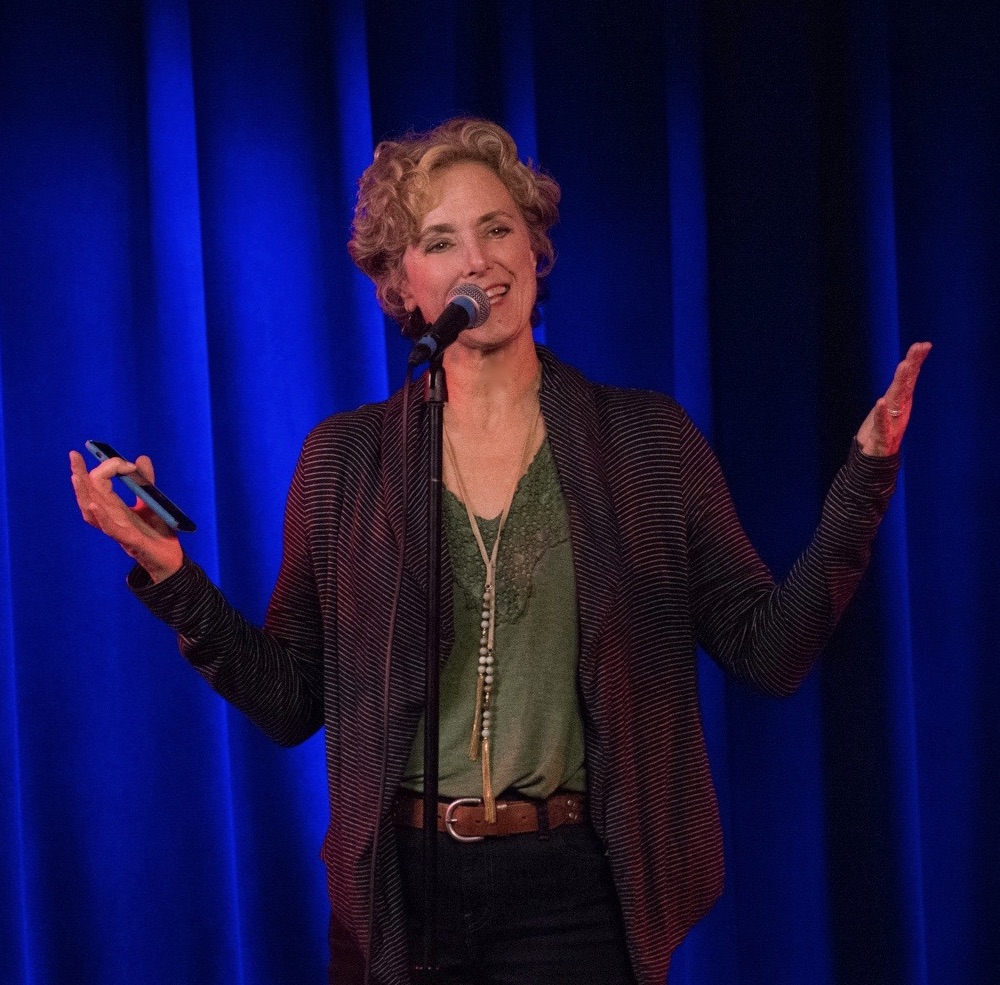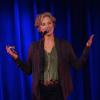Meet Teaching Artist Diane Kastiel


Diane is the producer of First Person Live, a monthly storytelling show in Chicago. Piloted in January 2017 in a tiny bar, the show regularly sells out its 150-person performance venue. Diane Kastiel is a three-time Moth StorySLAM winner; her work has been featured on the Moth Radio Hour, its podcast, and at live Moth events. Diane has told stories on stage at Second City, the Park West, Victory Gardens, and other Chicago theaters.
Diane is committed to creating inclusion, community, and compassion through storytelling. She works with libraries, high schools, and homeless shelters to bring storytelling to new populations. She’s partnered with the Kennedy Forum to help people with mental health/substance abuse disorders tell their stories, and she developed Rude to Respect, a story-based public awareness program for people with stigmatized health conditions. Diane also leads workshops at colleges and universities, including Northwestern University’s Kellogg School of Business and its Nonprofit Management Center.
You can find Diane's current classes on her artist bio page.
***
When did you start teaching? What path—career or otherwise—brought you here?
I told my first story on stage in April 2011 at a Moth Story Slam. I didn't win the slam (came in second though!), but I caught the bug and continued to tell stories on stage all over Chicago and eventually started producing my own show. Along the way, enough people asked me for tips and coaching that I decided to offer storytelling workshops—first in my home, and later at libraries, high schools, shelters, and most recently Northwestern University. It's one of those things that I just happened upon but feel born to as well—one of the best parts of my creative work.
How would you describe your teaching style?
Interactive! Few people want to hear a lecture about creative work—most want to roll up their sleeves and get to it. This is especially true of adults, who have so much life experience and insight already. I consider myself a facilitator more than an instructor, though of course I bring my own experience to bear on discussions and exercises, so that students gain new knowledge and skills while making their unique contribution to the group.
When it comes to imagining and creating classes, where do your ideas come from? What in particular inspires you?
I think, "What would keep me from being bored?" and then do that. I borrow from experiences I've had in workshops that flew by and left me feeling not just educated but energized. And I embrace students' participation and ideas, so each workshop feels uniquely theirs. My students often continue to meet informally to workshop stories and support each other's creative work—that's the kind of bond I strive to create.
What's the ideal environment for your classroom? What atmosphere are you hoping to establish?
I love meeting live but have come to embrace online workshops during the pandemic. Regardless, I like to see a lot of questions, discussion, idea-sharing, and feedback from participants. Half of the workshop is solely devoted to participants listening to and commenting on each other stories—because that's where the real learning (not to mention confidence-building) takes place.
Regardless of what your class is specifically focusing on, what's the main goal you have for your students?
I always say that, to be a storyteller, you need to: (1) be a human being who (2) has lead a life. It's kind of a joke but not really: we are storytelling animals, and life hands us material all the time. My workshops simply help people shape these stories in a way that expresses what they want to express while entertaining their audience. I want students to leave my workshop feeling like their life experiences have real value and confident that they can craft them into compelling stories. And I want them to feel like they can't wait to go craft more stories!
What are goals you have for yourself? These could be teaching goals, writing goals, career goals, community goals, etc.
Covid colors all our goals, I think. Right now, I'm eager to start producing live storytelling shows again, to keep storytelling alive through workshops and through writing new stories of my own, and to look for ways to build community through storytelling. The world is in need of connection and healing right now, and sharing stories is one of the surest ways to do that.
What have been some of your own favorite educational experiences?
All super interactive ones: The Great Books course at the University of Chicago, where we read and discussed great works of Western literature, with professors as simply discussion facilitators. The Second City Conservatory in Chicago, where I studied improvisational comedy and laughed for hours at a time—at our attempts to learn as much as at the comedy! My monthly writers groups, where I learn so much from cherished colleagues. And teaching Jr. Great Books for many years to kids as young as age six—what they already knew about literature blew my mind and knocked me off any "teaching" pedestal I might have had.
To you personally, what is the most important part of the literary arts?
Helping us figure out what it means to be a human being—to navigate this beautiful, terrifying world we share in a way that does the least damage and creates the most joy. BOOM.
Is there anything else you'd like to share?
What I love most about storytelling is that anyone can do it. You don't have to be a talented writer or skilled performer or wise elder to share your life experiences with others and make meaning of them through the telling. Storytelling must entertain, first and foremost, but it also connects, heals, and builds community—that's the holy grail for me.
